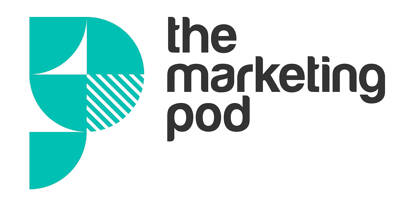Kate Garratt, Director of Client Services, at The Marketing Pod, discusses the communications gap between business energy companies and their customers, and sets out steps those companies can take to avoid greenwashing, greenhushing and greenwishing.

As the media shows an increased interest in the energy sector, a significant challenge for business utilities and energy companies is to maintain their reputation through an energy crisis, while working to fulfil the government’s net zero agenda.
Now more than ever, business energy suppliers and service providers need to build effective communication strategies. An opportunity exists for them to build consumer trust and be transparent about the challenges of playing their role in implementing a renewable, secure and affordable energy system in less than two decades, with few clear policy signals in place.
Despite the overwhelming obstacles facing the sector, we believe that communicating effectively can be an opportunity for energy companies to bridge the gap between customer expectations and reality.
Silence is deafening when we’re all talking
Effective communication is essential for energy companies as they work towards a low-carbon future. Yet, with no clear plan in place for achieving net zero emissions by 2050, businesses within the sector might be hesitant to publish their progress towards science-based net zero targets. This is mostly due to concerns about public scrutiny if targets are not achieved, not ambitious enough, or not time-bound.
This reluctance to communicate what companies are doing to contribute to carbon neutrality is known as “greenhushing.” And although concerns of public scrutiny can be understandable, greenhushing can negatively impact companies’ ability to attract investors and gain consumer trust.
This leads to a vicious circle of missed opportunities and hinders companies from securing funds from environmentally-conscious stakeholders, building consumer trust and loyalty, and influencing decision-makers – further delaying the country’s progress towards net zero.
Talking about what matters
With more attention given to the energy sector’s sustainability and social engagement practices, it is becoming increasingly vital for energy businesses to develop credible ESG strategies that have the potential to make a real impact.
Organisations may be tempted to set incredible ambitious goals, but overestimating results or failing to achieve targets due to wishful thinking – a practice known as “greenwishing” – can also be detrimental. Although it’s important to talk about corporate achievements that have a positive impact on customers or wider communities, setting inaccurate expectations will lead to disappointment. Furthermore, this practice can negatively impact the progress of businesses that are setting more realistic standards, making them seem unable to keep up with competitors who are overpromising.
On the other hand, establishing an ESG strategy based on evidence and explaining the reasons for choosing those targets will demonstrate a real commitment to social purpose.
The importance of transparency
The rise of ESG-related regulations means that companies need to be aware of how to express their environmental claims in a way that is truthful and transparent. But striking a balance between shouting about your green initiatives, and being realistic about what is achievable within a given timeframe, isn’t always easy.
However, it’s important to get this balance right. Over-selling what a company is doing to protect the environment – a practice known as greenwashing – will eventually harm a business’s reputation and erode consumer and stakeholder trust.
False green claims can also lead to serious legal consequences. The Government has recently approved the Digital Markets, Competition and Consumer Bill, which will allow the Competition and Markets Authority (CMA) to impose direct penalties on companies that mislead consumers with greenwashing. The fines can be up to £300,000 or 10% of a company’s annual turnover – whichever is higher – so it’s advisable for businesses to familiarise themselves with the CMA’s Green Claims Code and always be as accurate and transparent as possible.
Getting the right communications support
As the world transitions towards a more sustainable energy system, it is expected that media interest and communication strategies in the energy sector will continue to evolve. Now more than ever, energy companies must keep their ear to the ground and be tactical and proactive.
Energy firms that prioritise long-term sustainability and are willing to fill the communications gap with evidence-based, trustworthy content will reap the rewards. Seeking the right support from an experienced communications agency can help them avoid greenwashing, greenhushing and greenwishing, and provide valuable insights to their customers and stakeholders.
N.B. The information contained in this entry is provided by the above supplier, and does not necessarily reflect the views and opinions of the publisher


